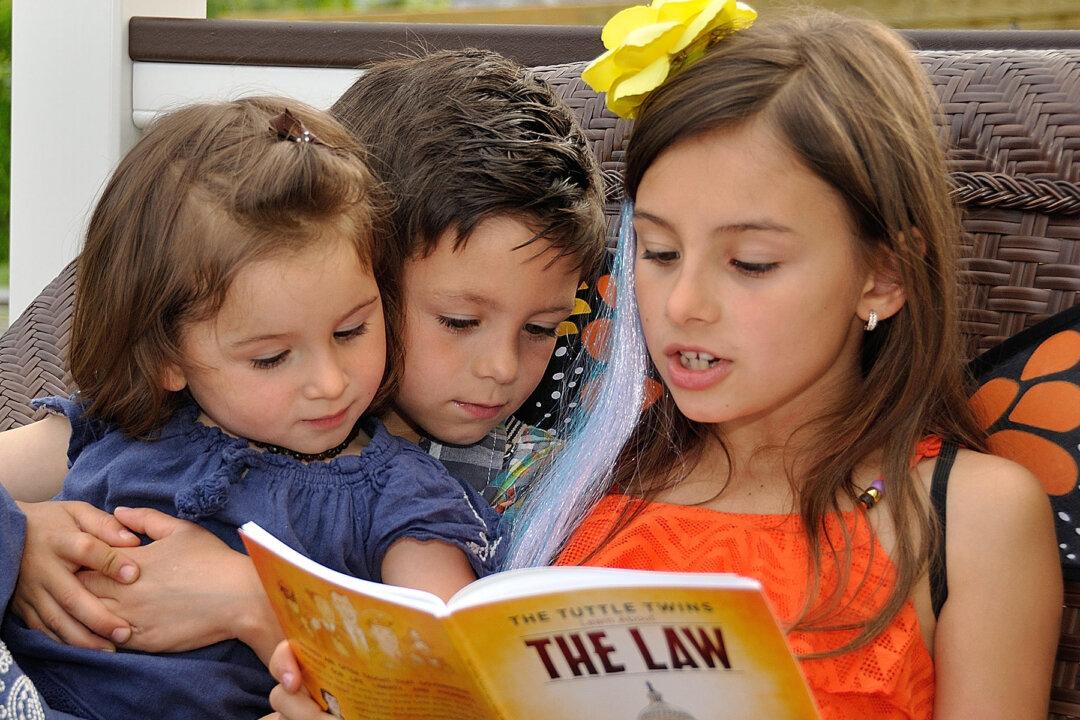Yes, your 7-year-old is perfectly capable of understanding how the Federal Reserve works.
The Tuttle Twins series is a set of 10 books geared toward children around ages 5–11, illustrating various ideas around the free market, economics, and civics. Economics classics like F.A. Hayek’s “The Road to Serfdom” and Frédéric Bastiat’s 1850 essay, “The Law,” get distilled into colorful adventures where the twins, Ethan and Emily, learn about central planning, entrepreneurship, individual rights, inflation, and even the golden rule, of how we should treat others the way we want to be treated.






